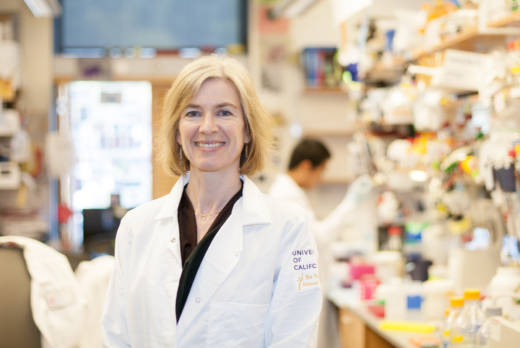A Google search for the exact phrase "barriers to women in science" brings up 85,000 results. "Barriers for women in science" fetches another 30k and change.
Here's a 2010 report from the American Association of University Women that found negative stereotypes contributing to implicit bias against females in the STEM fields. This 2014 survey found 70 percent of female scientist trainees doing fieldwork had experienced sexual harassment.
So no, it's not a new concept. And yet, it was still a little unnerving to hear someone as prestigious as Jennifer Doudna -- a pioneer of the gene-editing technique CRISPR whom The New York Times said "helped make one of the most monumental discoveries in biology" -- say on KQED Forum recently that she, too, was hitting the proverbial glass ceiling. When asked if she'd ever experienced gender discrimination, she told host Michael Krasny:
"This topic comes up a lot and I have to say, earlier in my career, honestly, I never gave it a thought. I didn't think about my gender, I pursued my passion for science and research. But I do have to tell you, as I've gone on in my career, particularly the last 10 years or so, I've gotten to a point where I do now see signs of the glass ceiling. I don't think it's always intentional bias, but ... I do experience bias against women in some settings.
"I think that what we're seeing is that it's very difficult for women to break into the top echelons of leadership in science. I'm not talking so much here about university leadership, but more leadership in the highest levels of public policy and the government, as well as in company board rooms."
Overcoming Bias
Doudna is not alone. Last month, a panel at the Women in Science Summit in San Francisco shared personal experiences of gender discrimination.
